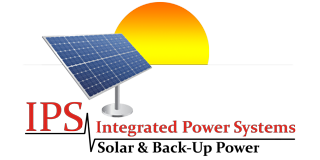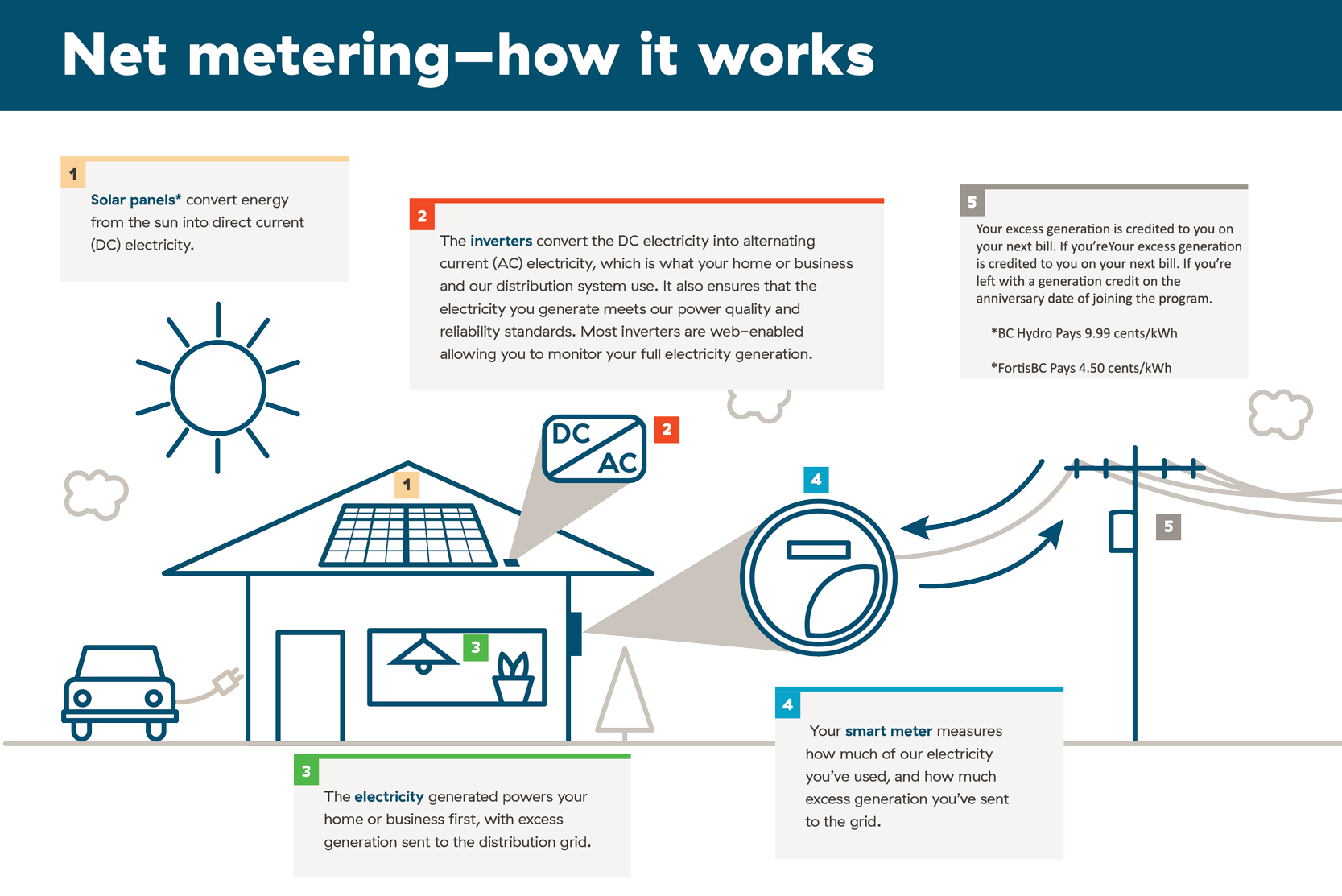Welcome to the 2nd edition of our newsletter blog: Solar Power Questions – Learn from IPS.
Our goal is to help you understand the basics of solar power systems, so you may make informed and educated choices.
If you missed our first Newsletter Blog, you can find it here: IPS Newsletter Blog
Solar Power Question: “What are the differences between Net Metering with BC Hydro and FortisBC , and do both companies pay back customers equally if they’ve generated a surplus of electricity?”

In order to understand the differences between both companies Net Metering programs, it’s important to understand the differences in how BC Hydro and FortisBC charge customers for electricity.
FortisBC as of 2018
FortisBC has applied to the BCUC for a rate increase of 0.17 per cent for 2018 and this amount is now under regulatory review.
In 2017 customers saw an interim 2.76 per cent increase take effect on January 1st. For the average residential electricity customer, this was an increase of approximately $3.65 per month. This interim rate change was made permanent by the BC Utilities Commission on January 27th.
Residential rates
Bi-monthly Residential Service:
FortisBC electricity rates:
- TIER ONE: First 1,600 kWh are billed @ $0.10117 per kWh.
- TIER TWO: Additional kWh are billed @ $0.15617 per kWh.
- Basic Charge $0.53/day ($32.09 based on 60 day billing period.)
BC HYDRO rate increase of 3% will come into effect as of Apr. 1st 2018
In April 1, 2017, residential rates increased by 3.5%. This is in line with their 10-year rates plan announced in November 2013, which includes incremental rates increases of 4% in 2016, 3.5% this year and 3% in 2018.
Bi-monthly Residential Service:
BC HYDRO electricity rates:
- TIER ONE: First 1350kWh are billed @$0.0858 per kWh
- TIER TWO: Additional kWh are billed @$0.1287 per kWh
- Basic charge: $0.1899/day. ($11.39 based on 60 day billing period
BC Hydro Rate Rider Fee: The Rate Rider covers additional and unpredictable energy costs resulting from, for example, low water inflows or higher-than-forecast market prices. There is a 5% Rate Rider applied to all charges before taxes and levies.
Net Metering with BC Hydro and FortisBC – The Annual Reconciliation Payback Rate:
| BC Hydro Pays 9.99 cents/kWh | FortisBC Pays 4.50 cents/kWh |
*A once a year payment on the anniversary date of your Grid-Tie system start-up.
As Thomas Hackney of BCSEA points out: “Here’s the big issue. For the annual cash settlements, Fortis wants to pay its net metering customers no more than the rate it pays to acquire power from other sources, and Fortis says the 4.5 cents/kWh it pays BC Hydro fairly represents that rate. This is less than half of what it pays its commercial net metering customers and less than one third of the Tier 2 rate for residential net metering customers.” [Read the full article here]
As you can clearly see FortisBC charges customers more for electricity and also pays customers back at a lower rate. It will be interesting to see how these rates change over the years, but one thing will be certain: electricity rates will continue to increase and the solar power industry will continue to grow as solar power has rapidly become the best option for consumers to reduce their electricity bills while investing in their homes at the same time.
While investing in solar power is a great way to take advantage of net metering with BC Hydro and FortisBC in order to save money on electrical bills, and increase the value of your home, property, or business; what else can we do to reduce our electrical bills? Check out our next edition of our Newsletter Blog: The top 10 Things You Can do to Reduce Your Electrical Bills.
We look forward to your questions and comments and please feel free to share this post if you think it might be helpful to someone you know.
Contact IPS today
Phone: 250-769-2843
Email: Sales@IPWR.net
#101 – 2387 Dominion Rd
West Kelowna, BC V1Z 2Y4
Canada

